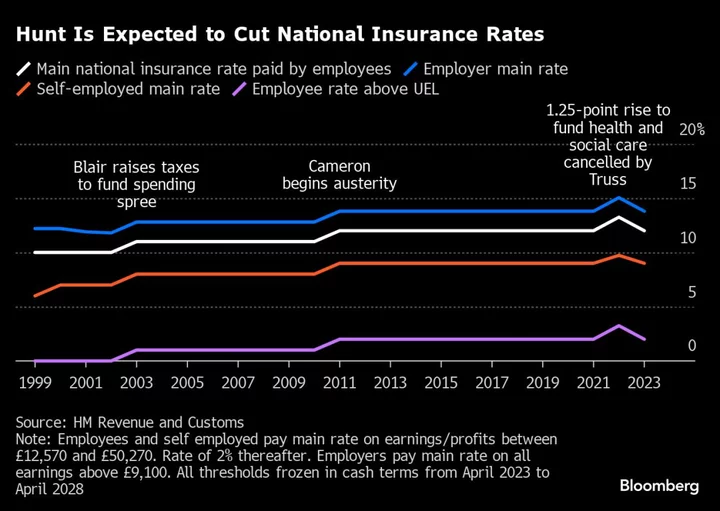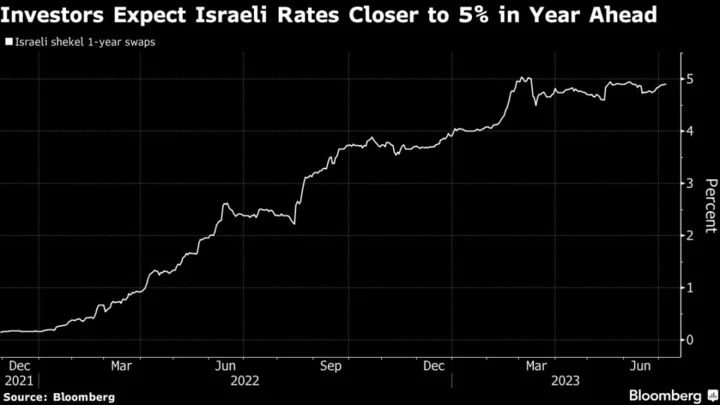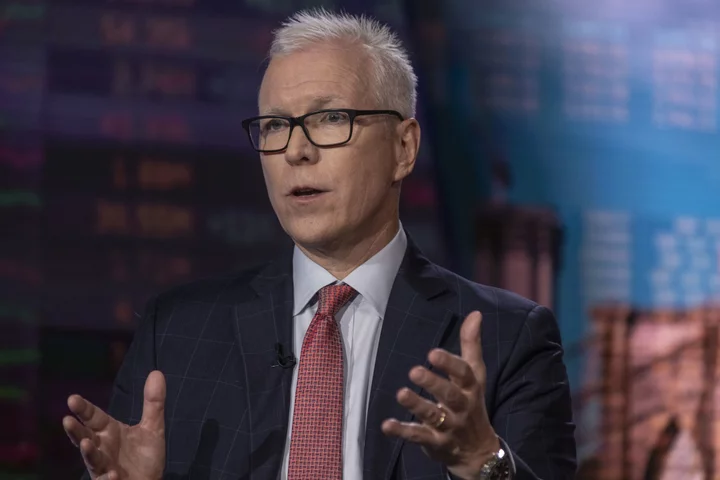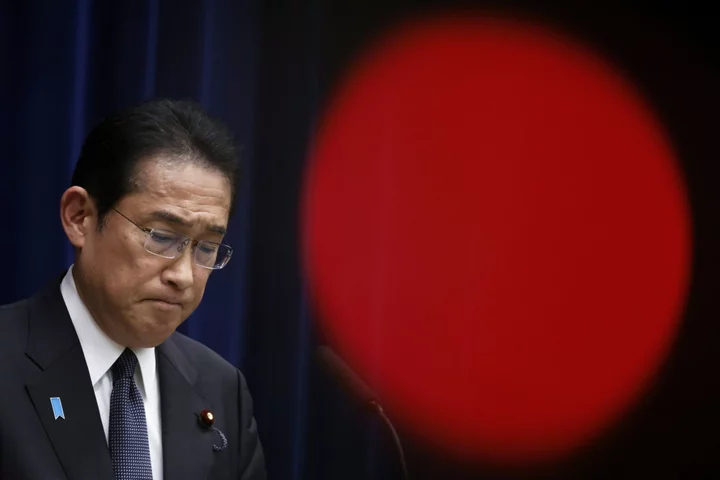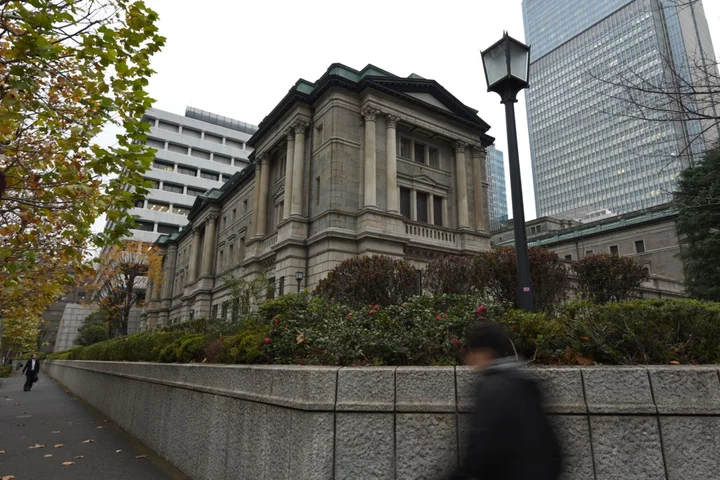Chancellor of the Exchequer Jeremy Hunt cut personal and business taxes as he tried to shift the economic narrative and set out dividing lines with the opposition Labour Party ahead of a general election expected next year, even as the UK’s growth forecast was substantially downgraded.
Hunt’s most eye-catching announcement was a two percentage point reduction to the headline 12% rate of national insurance, a payroll tax, a move he said would help 27 million people. He also made permanent a tax break for corporate investment known as “full expensing,” calling it the largest business tax cut in modern British history.
The emphasis on tax cuts underscored the pressure faced by Prime Minister Rishi Sunak’s Conservative government, which is running out of time to win back voters and claw back a 20-point gap to Keir Starmer’s Labour in national opinion polls. Yet despite Hunt’s bullish rhetoric, think tanks like the Resolution Foundation said his measures would barely dent the economic strain felt by Britons, even as he stores up spending trouble for the next government.
“Nothing that has been announced today will remotely compensate rising mortgages, rising taxes eating into wages, inflation high with prices still going up in the shops, public services on their knees, and too many families struggling to make ends meet,” said Labour’s Rachel Reeves, who polls suggest could be giving the chancellor’s statement in a year’s time, said in Parliament.
What had been predicted to be an Autumn Statement bereft of large giveaways over the summer morphed dramatically in the run-up to Hunt’s announcement, as Sunak and his senior ministers began to talk up the prospect of tax cuts. They cited the reduction in inflation as a rationale for shifting tack, but in reality, Hunt was able to announce tax cuts in large part because high inflation and wage growth helped boost tax receipts.
It gave Hunt a buffer before hitting his fiscal rule — having debt falling as a share of GDP in the fifth year of the forecast period — of £30.9 billion to play with. Factoring in his measures, the number drops to £13 billion, which is double the headroom he left himself in March but is still small by historic standards and leaves his plans exposed to a downturn in the economy.
According to the Resolution Foundation, what Hunt has effectively done is spend his inflation windfall on tax cuts while leaving in place government spending plans as implausibly low for the remainder of the forecast period. Or put simply, leaving a future administration the choice of raising taxes or cutting public services. Hunt’s headroom is a “fiscal illusion” because post-election commitments will likely prove politically impossible to deliver.
“For all the talk of a long-term strategy this was a short-term approach, with giveaways today but the costs to be borne by the country in the future,” Carys Roberts, executive director at the Institute for Public Policy Research think tank, said in an emailed statement.
Hunt’s package of tax cuts was overshadowed by anemic economic forecasts from the Office for Budget Responsibility, with the UK economy due to grow 0.7% in 2024 and 1.4% in 2025, compared with the previously forecast 1.8% for 2024 and 2.5% for 2025.
Read more: UK Holds Off on Big Cut to Planned Debt Sales, Weighing on Gilts
“This statement is a deception from the chancellor after years of unfair tax hikes,” Sarah Olney, Treasury spokeswoman for the Liberal Democrats, said in Parliament. “Under this Conservative government economic growth is flat-lining and public services are on their knees.”
On spending, Hunt said he would raise welfare payments in line with September’s inflation figure rather than October’s lower reading, a prospect that had sparked concern among some of his MPs worried about the impact on struggling voters. He also maintained the pensions triple lock, deciding not to use a lower pay figure for the latest uprating.
The chancellor had been under intense pressure to announce personal tax cuts, as Tory MPs demand he reduce a tax burden that has risen to a postwar high under the Conservatives. The importance of this Autumn Statement has grown for Sunak after a run of failed resets, including a largely-forgotten conference speech last month and a slim legislative agenda at the King’s Speech.
In his speech, Hunt took aim at various Labour policies including the opposition party’s pledge to spend £28 billion a year transitioning the economy to green energy. The strategy is clear, to present the Tories as a party bringing taxes down — hoping voters look past their record in government — while trying to show Labour as a government that would raise the burden to finance its ambitions.
“In today’s Autumn Statement for growth our choice is not big government, high spending and high tax because we know that leads to less growth, not more,” he said. “Instead we reduce debt, cut taxes and reward work.”
--With assistance from Kitty Donaldson, Irina Anghel, Philip Aldrick and Andrew Atkinson.

